
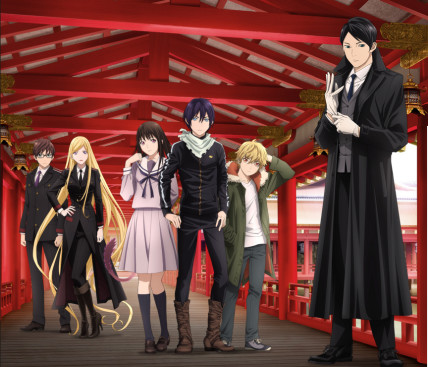
I didn’t bother to do an “Early Impressions” post for the second season of Noragami (Hulu) because I didn’t feel that I had much to add. I had already praised the first season. It seemed obvious that anyone who liked the first season would want to watch the second, and anyone who hadn’t seen the first season would find the second season incomprehensible.
Now, in retrospect, I find that I do have something to say. Although I liked the first season, the second season is a lot better and raises the whole series to a higher level.
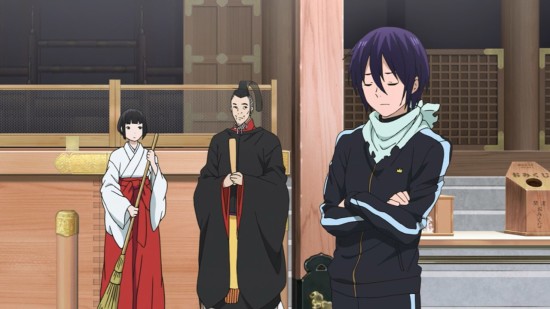 The first season spent most of its 12 episodes just establishing its world. It used its time pretty efficiently but it was still limited in how much of a story it could tell and it left a lot of unanswered questions.
The first season spent most of its 12 episodes just establishing its world. It used its time pretty efficiently but it was still limited in how much of a story it could tell and it left a lot of unanswered questions.
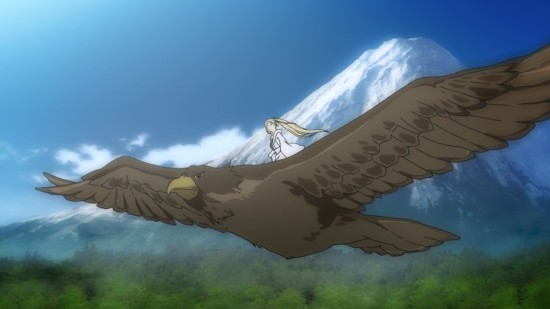
The second season assumes that we know the ground rules and jumps right into a pair of dramatic stories which feature the sort of character development that the first season didn’t have time for.
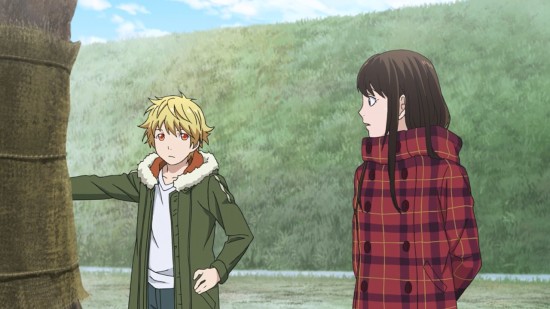
Yukine shows the greatest character growth. He spent most of the first season sulking because life (or rather death) had dealt him such a bad hand. By the end of the season he had more or less come to terms with it. In the second season he starts to work hard to make the best of his situation and by the end he has become a character of considerable importance.
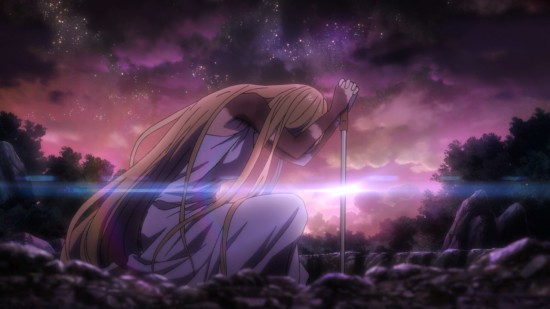
Bishamon was always a cool character but she seemed basically crazy. In the second season she becomes much more sympathetic though her judgement still seems questionable. (Perhaps less so to Japanese viewers given the tremendous importance that the culture puts on loyalty and sincerity.)
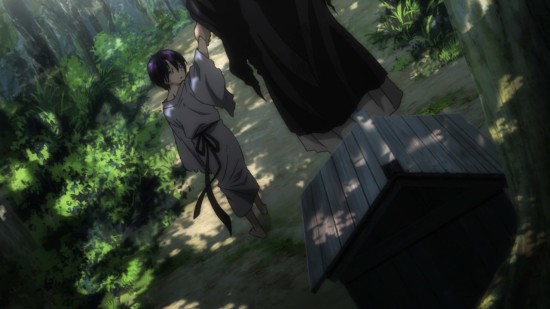
As for Yato, the “stray god” of the title, he spent the first season alternating between acting heroic and acting like a jerk. The second season gives us a much better understanding of what motivates him.
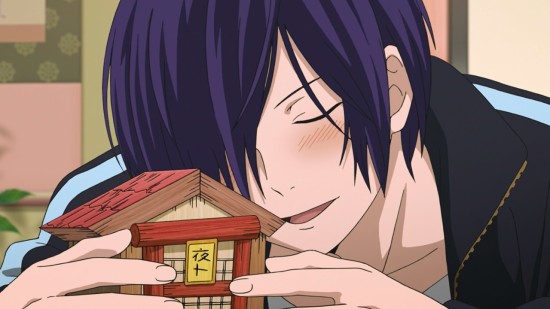
Show ▼
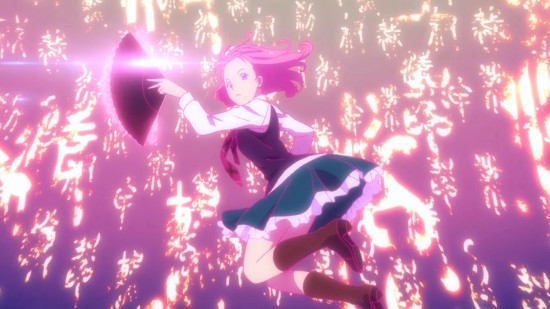
Funimation’s translation seems somewhat better this season. They do carry over some unfortunate terms from the first season (e.g. “Regalia” and “Phantom”) but when new terms are introduced the translator makes much better choices (e.g. “Blessed Vessel.”)

I might quibble about the use of “Conjurer.” This originally meant someone who summons and controls spirits, especially evil spirits. Based on that meaning the translation is spot on. However in England the word has come to mean a stage magician who relies on trickery. Anyone who understands the word in that sense is likely to be very confused.
But Funimation is an American company and the word isn’t commonly used here to mean a stage magician. So under the circumstances I’m going to say that it is a pretty good translation.


